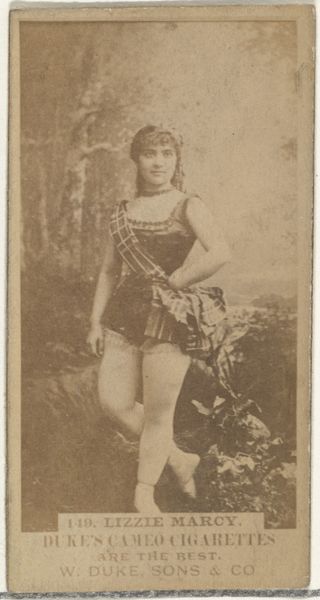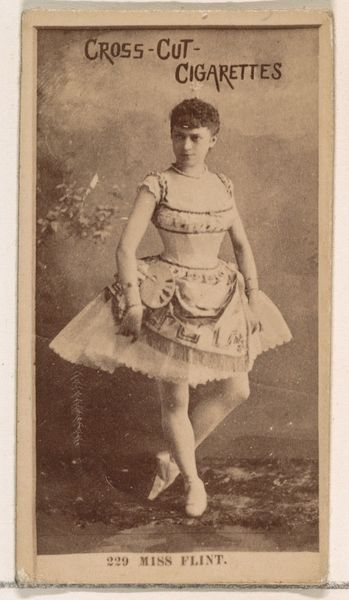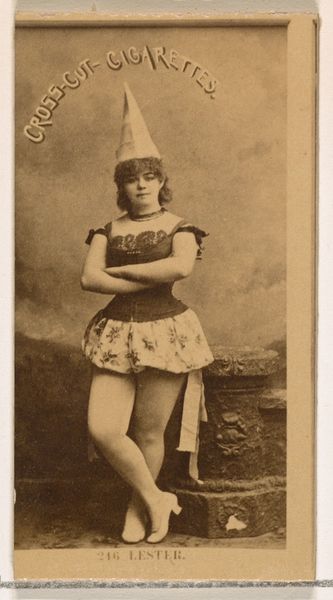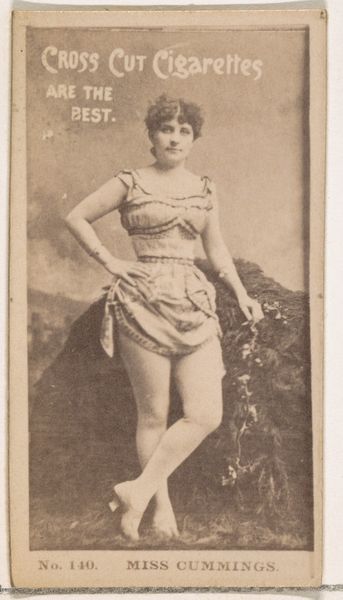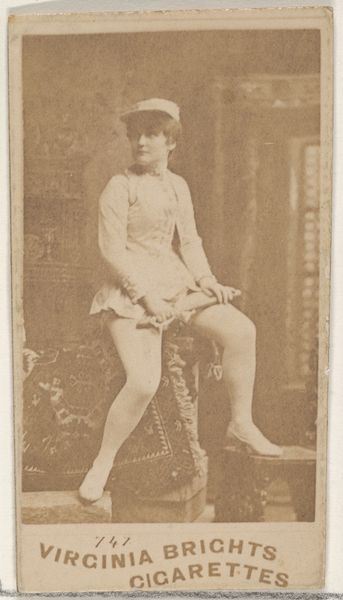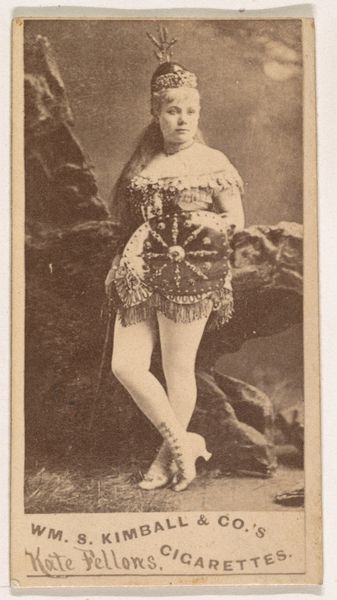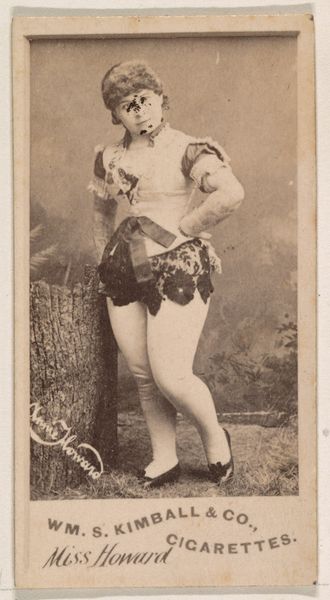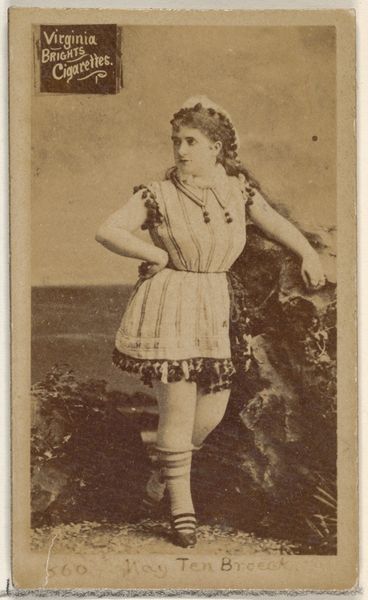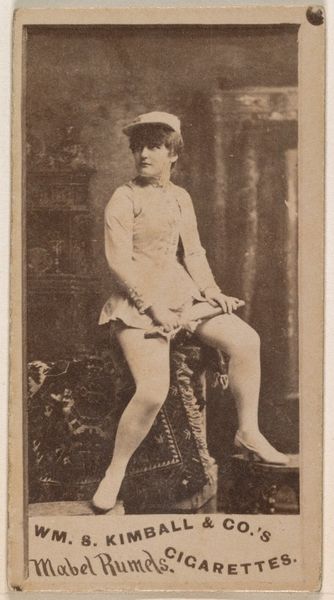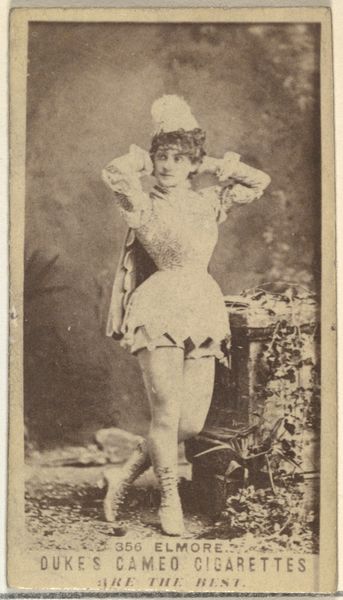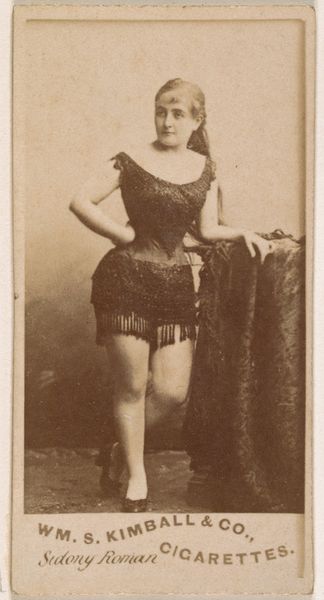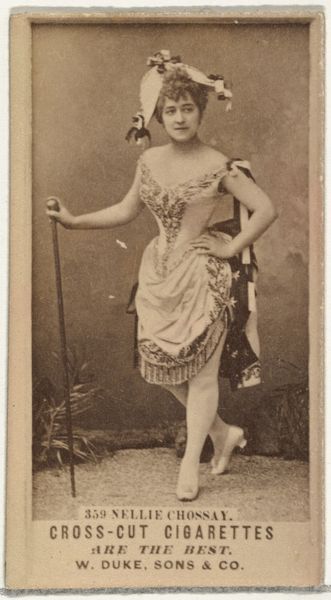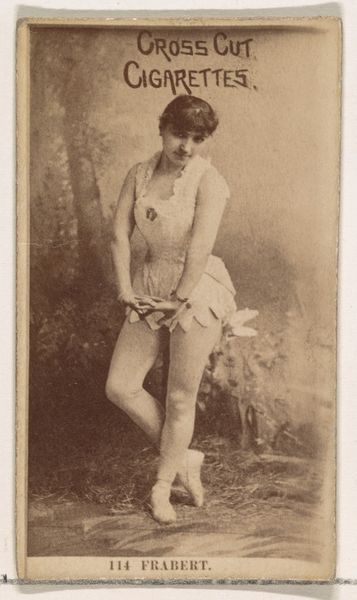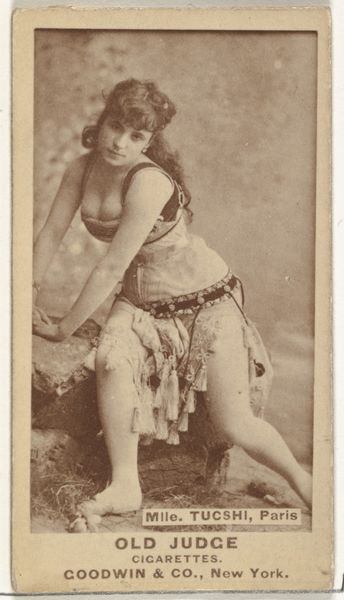
Miss Desoms, from the Actresses series (N203) issued by Wm. S. Kimball & Co. 1889
0:00
0:00
drawing, print
#
portrait
#
pencil drawn
#
drawing
#
toned paper
#
light pencil work
# print
#
pencil sketch
#
charcoal drawing
#
charcoal art
#
pencil drawing
#
19th century
#
men
#
watercolour illustration
#
watercolor
Dimensions: Sheet: 2 5/8 × 1 3/8 in. (6.6 × 3.5 cm)
Copyright: Public Domain
Editor: This is "Miss Desoms, from the Actresses series," a print made in 1889 by William S. Kimball & Company. It's got this old-timey sepia tone that makes it feel like looking into a memory. There's something about her gaze; it's a mix of confidence and maybe just a touch of defiance. What catches your eye when you look at this, though? Curator: Well, isn't she a captivating sprite! Firstly, it’s a cigarette card! Pocket-sized art accompanying a nicotine craving—how's that for accessible art? Beyond the marketing gimmick, though, look at how her kilt is rendered. A suggestive tartan! But is it a tribute, or an appropriation? Back then, cultural identities were commodities. Does her pose strike you as performative or powerful? Editor: I guess performative, it feels posed, a little too much. The landscape feels…added. It makes me wonder who she was outside of the photo. Curator: Exactly! It is stagecraft. And staged for whose consumption? The late 19th century was all about spectacle, the theatrical flourishing everywhere! Look at her frills, her slight smirk...it all suggests a role being played. How do you think the intended audience reacted to this? Did it inspire fantasies, or reflect existing norms? Editor: Hmm, it probably depended on who was looking, right? Different people saw different things, confirming their ideas already in their heads. It’s kind of like Instagram today! Curator: Precisely! These fleeting images offered curated versions of reality. This “actress,” nameless now, exists in our present as a curated fragment of the past, asking us to project, imagine, question. That, I think, is its strange, enduring magic. Editor: That's so true. I initially saw it as a pretty picture, but now I realize there’s so much more to it, about culture and performance, about how images sell us ideas. Curator: Art's sneaky like that. A simple image, and yet it becomes a portal, doesn't it? To questions that never really disappear, just shift shape across time.
Comments
No comments
Be the first to comment and join the conversation on the ultimate creative platform.
